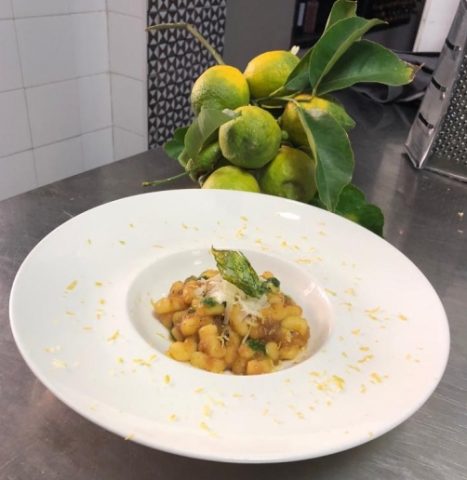Angelo Gaja and climate change
A summary of the conference where Angelo Gaja, in regard to climate change, spoke about vineyards, fertilizer, mass selection and running an estate.
On March 6, Angelo Gaja gave an address at a wonderful event organized by the Puglia chapter of the Italian Sommeliers’ Foundation at the Hotel Borgo Egnazia in Fasano, in the province of Brindisi. The subject of his address and the conference itself was climate change but he did not focus on whether or not it was actually taking place.
In the United States, he said, climate change is a divisive subject with Democrats and Republicans taking opposite sides of the barricade. In Italy, on the other hand, the debate is more technical and philosophic, much is the same way as the one on natural or bio-whatever wines.
According to Gaja, the first evidence that climate change was a problem came with the 1997 harvest that followed five weeks of far above-normal temperatures. The initial consensus was that this was a fluke year but then the situation was repeated in 2000 and the awful 2003 that no one will forget and this was just the beginning. According to scientists, there is no unequivocal evidence that this is nothing more than normal weather cycles. Gaja did not take sides one way or the other but it was clear that he was concerned and has taken measures, on the suggestion of his children, to change the way his vineyards are cultivated.
In his vineyards he uses tons of fertilizer made from cow manure that has been composed by American red worms. Gaja said he had trouble getting his Tuscan employees to accept these worms because Tuscans “are Communists and notoriously anti-American”! At his estate he employs eight outside consultants specialized in geology, agronomy, pest control, virosis and so on who contribute new and different viewpoints that are often in contrast with each other. Gaja said his job was to coordinate and mix them so they will collectively produce results. This has led to combating flour moths using sexual disorientation, cultivating other plants between the rows of vines and rotating these variations which include: flowers, legumes and grains. This is done to keep the soil from eroding and fostering its softness, porosity, in order to offset the consequences high temperatures have on the soil and supply organic substances even in the subsoil. Hundreds of cypress trees have also been planted to offer a habitat for birds, beehives are being managed by outside collaborators and produce wonderful honey while worms present in the soil are subject to annual inventories to determine whether their number is growing or not.
Anyone familiar with his estates, Ca’ Marcanda in Bolgheri and Pieve di Santa restitute in Montalcino, know they have a very low environmental impact with the vineyards covered with grass and surrounded by trees and olive groves. This explains his aversion to wineries that have been designed by star architects seeking further visibility.
In Piedmont, on the other hand, a rigorous mass selection is being carried out from the old Nebbiolo vines because this ensures a genetic selection that will certainly produce splendid vines even if they are very delicate. Here again, Gaja did not side one way or the other on this choice, preferring to see both solutions adopted and then judge them by the results.
To the many wine producers attending the conference Gaja stressed the need for them to speak English well, something he said they can even learn as adults. And although in Puglia winegrowers are rightfully devoted to Negroamaro and Primitivo grapes, he encouraged those considering producing excellent wines from the so-called international or French varietals to do so because it would be profitable since these wines are easily recognizable throughout the world and could open the door for estate wines made from native grapes.
At 77 years of age, Gaja said he could offer no magic solutions, only the experience of what has been done at his estates but that this was a good thing because exchanging ideas and experiences produces positive results. What I think he was saying was that that everyone should decide on their own what to do and that it was better not to just manage what exists or wait for some miracle solution. For sure, what they should is invest to get things done, to make their land and vineyards cleaner, healthier and more alive. And this should be done without seeking extreme solutions or making ideological choices but based on their own results and experience as well as that of others.
For Gaja all this has been almost a new beginning, or perhaps a return to from where he started. His father, in fact, made him work for seven years in the vineyard before letting him get involved in estate business. For many years he has had phenomenal assistance in managing the business from his wife Lucia and while their daughter Giulia handles foreign sales and daughter Rosanna is responsible for domestic sales, son Giovanni is abroad getting experience and should be returning to the fold soon. What this means is that he now has the immense pleasure of having more time to spend in his beloved vineyards, coordinating the activities of his consultants and evaluating first-hand the results achieved.
Gaja concluded by saying he was developing projects for the next 20 years but we all hope he will be around for much longer than that.

 Italiano
Italiano








